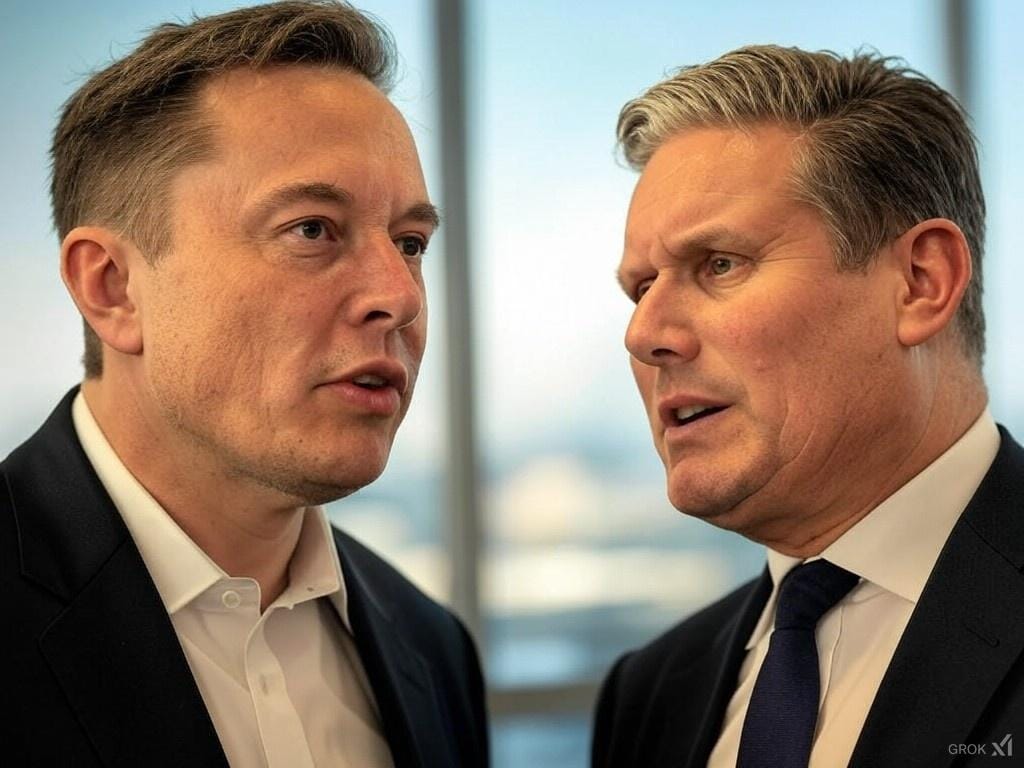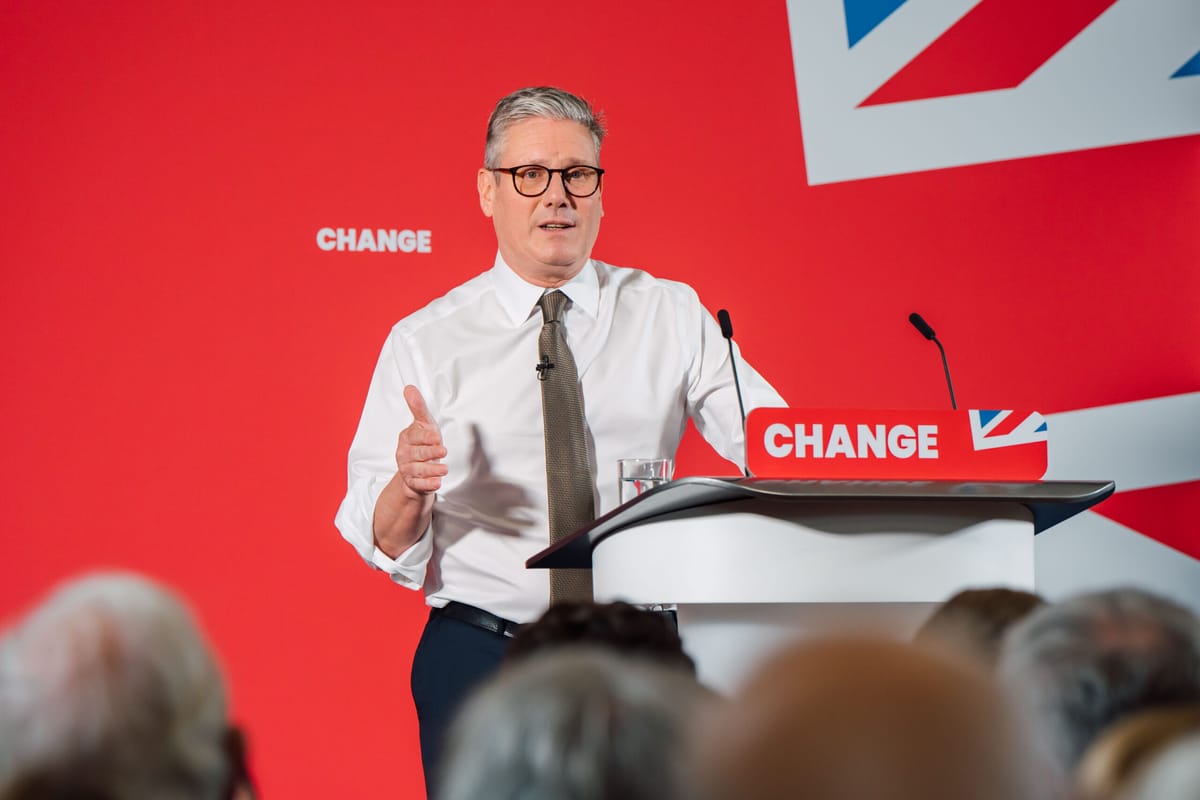The fight between Musk and Starmer
There's speculation that Musk's actions could be aimed at influencing UK politics, perhaps by aligning with or supporting figures and parties that oppose Starmer's Labour government

The interaction between Elon Musk and Keir Starmer, the current UK Prime Minister, involves a series of public and social media confrontations that have escalated over time, primarily centered around political critique, misinformation, and social issues. Here's an overview based on recent developments:
Background of the Conflict
- Criticism of Starmer's Policies and Actions: Musk has publicly criticized Starmer, particularly focusing on his handling of child grooming gangs in the UK, suggesting that Starmer failed to bring perpetrators to justice during his time as the Director of Public Prosecutions. Musk has also accused Starmer of being a "national embarrassment" and has called for his resignation or imprisonment, highlighting what he perceives as mismanagement or neglect of certain issues.
- Social Media Battles: Musk has used his platform X (formerly Twitter) to engage in or amplify criticisms against Starmer, often framing his comments in a controversial manner. This includes spreading misinformation or sharing posts that align with far-right narratives, which has led to accusations of inciting unrest or promoting divisive politics in the UK.
- Political Influence and Support: There's speculation that Musk's actions could be aimed at influencing UK politics, perhaps by aligning with or supporting figures and parties that oppose Starmer's Labour government. For instance, Musk has shown support for Reform UK and its leader Nigel Farage, suggesting a possible financial contribution to the party, which could be seen as an attempt to bolster opposition against Labour.
The End Game
- Regime Change or Influence: While Musk's direct influence on UK politics might seem limited due to his non-UK residency, his actions could be interpreted as an attempt to destabilize or challenge Starmer's government. His criticisms and support for opposition figures might aim to create political pressure or to influence public opinion against Labour. The end game might not strictly be "regime change" but could involve pushing for a political environment more aligned with his views or interests, such as less regulation on tech companies, a stance more favorable to free speech, or policies that benefit his businesses like Tesla or SpaceX.
- To What End? If Musk's involvement is about influencing or changing the political landscape in the UK, the goal could be:
- Promoting Free Speech: Musk is known for advocating for less censorship and more freedom of expression on social media platforms, which might clash with UK regulations like the Online Safety Act.
- Business Interests: Ensuring a political climate that's less regulatory for tech and innovation, particularly beneficial for Tesla's expansion or X's operations in the UK.
- Cultural and Political Shift: Aligning UK politics with more right-wing or populist sentiments, which might resonate with his personal political beliefs or those of his allies.
Broader Implications:
- Musk's engagement in UK politics reflects a trend where influential global figures can impact national political discussions through social media. This scenario raises questions about foreign influence in domestic politics, the role of misinformation, and the power of tech moguls in shaping public discourse.
- The narrative around this conflict suggests a complex interplay between personal vendettas, political ideology, and business interests, where the exact intentions of Musk might be multifaceted and not solely about regime change but rather about exerting influence for broader personal or corporate gains.
In summary, while Musk's actions might not directly lead to regime change, they certainly aim to challenge and perhaps reshape the political discourse in the UK, with implications for how policy, especially concerning freedom of speech and technology regulation, might evolve.
Read more WF news


